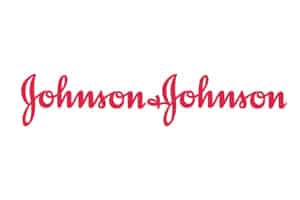
Johnson & Johnson has clinched another approval for its prostate cancer drug Erleada in Europe, maintaining a regulatory lead over rival Xtandi from Astellas and Pfizer.
The EMA clearance for Erleada (apalutamide) in metastatic castration-sensitive prostate cancer (mCSPC) adds another 100,000 European patients to the drug’s eligible patient population, says J&J’s Janssen pharma unit.
mCSPC accounts for the sizeable proportion of prostate cancer patients who have advanced disease, but whose tumours still remain sensitive to treatment with androgen deprivation therapy (ADT) based on older, hormonal drugs. In many cases, ADT alone isn’t sufficient to keep the disease under control.
Erleada can now be used for mCSPC patients in combination with ADT in Europe ahead of Xtandi (enzalutamide), which was approved for this indication in December in the US but still hasn’t got the green light in Europe after its filing there last July. Erleada got the go-ahead for mCSPC in the US last September.
Androgen inhibitor Erleada (apalutamide) is J&J’s follow-up up to big-selling prostate cancer drug Zytiga (abiraterone acetate), which has been hit by the loss of patent protection and generic competition.
Xtandi is now the dominant player in the market by value, with annual sales expected to top $4bn in 2019 while J&J reported another 20% drop in Zytiga to $2.8bn earlier this month.
So far, Erleada – which was also approved to treat non-metastatic castration-resistant prostate cancer (nmCRPC) a few months ahead of Xtandi and Bayer’s recently-approved competitor Nubeqa (darolutamide) – hasn’t grown enough to warrant a mention in J&J’s financial reporting.
Just 10% to 20% of prostate cancer cases are castration-resistant, so the new castration-sensitive indication is seen as being critical for J&J if it hopes to achieve its earlier blockbuster sales predictions for Erleada.
The EU approval is based on data from the phase 3 TITAN trial, which found that Erleada plus ADT significantly improved overall survival compared to placebo plus ADT, with a 33% reduction in the risk of death. Two-year survival rates were 82% for J&J’s drug compared to 74% for placebo.
This week, Bayer reported updated results from the ARAMIS nmCRPC trial for its new challenger Nubeqa, showing that the drug significantly increased overall survival compared to placebo when given on top of ADT.
The full data isn’t available yet, but the results back up earlier results from the trial which showed that men on Nubeqa live for long without their disease progressing. So far, Nubeqa has been approved in the US, Brazil and Japan, with European filings still pending.




